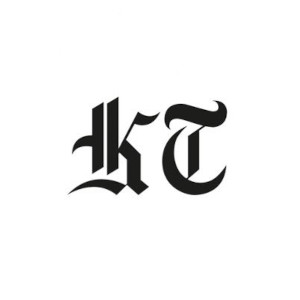CASABLANCA: The Mohammed VI Foundation for Health and Sciences announced the successful completion of Africa’s first kidney transplant between a donor and recipient with incompatible ABO blood types, a landmark breakthrough in regional medicine. The complex procedure was carried out in close coordination between the departments of anesthesia and resuscitation, nephrology and urology, hematology, and medical biology, in collaboration with the Mohammed VI Blood Transfusion Center and the vascular surgery team. Scientific support was provided by Professor Lionel Rousteing, a global expert in kidney transplantation with blood type incompatibility.
The achievement, hailed as a major advance in medical innovation, underscores Morocco’s commitment to expanding access to organ transplants and pushing the boundaries of immunocompatibility. The foundation stressed that the breakthrough represents not only a national milestone but also a step forward for healthcare across the African continent.
MoU on rare diseases
In parallel, the Mohammed VI Foundation for Health and Sciences signed a memorandum of understanding with AstraZeneca in Rabat to establish centers of excellence dedicated to rare diseases. The initiative aims to strengthen Morocco’s healthcare system by improving diagnostics, treatment access, and the training of medical professionals. The agreement includes the development of advanced diagnostic platforms, the integration of genetic testing technologies, and the creation of multidisciplinary hubs for treatment, research, and education. Both sides emphasized that the partnership reflects a long-term strategy to meet urgent medical needs and deliver sustainable benefits to patients.
Meanwhile, the Mohammed VI University Hospital Center in Tangier, inaugurated in 2023, is emerging as a benchmark for modern, patient-centered healthcare in the Tangier-Tetouan-Al Hoceima region. Built on 23 hectares and housing around 800 beds, the hospital integrates innovation, training, and compassionate services. Officials described it as a new-generation institution that combines cutting-edge medicine with a humane approach, designed to meet today’s health challenges while anticipating future needs.
Expansion of health centers
On the occasion of the 26th anniversary of King Mohammed VI’s accession to the throne, Morocco’s healthcare system was further strengthened with the launch of services at 200 urban and rural health centers across eight regions. Minister of Health and Social Protection Amin Tahraoui inaugurated the Al-Quds Urban Health Center in Errachidia, marking the rehabilitation and equipment of centers nationwide. The distribution includes 40 facilities in the Drâa-Tafilalet region, 39 in Fez-Meknes, 24 in Marrakech-Safi, 21 in Souss-Massa, and dozens more across Oriental, Beni Mellal-Khenifra, Guelmim-Oued Noun, and Tangier-Tetouan-Al Hoceima. The ministry said the expansion reflects King Mohammed VI’s vision to modernize primary healthcare, advance social protection programs, and bring medical services closer to citizens in underserved areas.
Focus on dental education
In Casablanca, an international symposium under the patronage of King Mohammed VI discussed the challenges and prospects of basic and continuing dental education in Africa. Experts called for integrating artificial intelligence and simulation technologies into curricula, developing academic human resources, and standardizing training at regional and global levels. Organized by the Mohammed VI Faculty of Dental Medicine in partnership with the African Academy of Health Sciences, the two-day event featured workshops and lectures addressing innovation, research, and cooperation among dental institutions.
Regional health reform
Separately, Head of Government Aziz Akhannouch chaired the first board meeting of the Tangier-Tetouan-Al Hoceima Regional Health Group at the Mohammed VI University Hospital in Tangier. The region has been selected as the pilot zone for Morocco’s new regional health governance model, part of the Royal directives to reform the national health system in line with the broader social protection agenda. The meeting approved the group’s 2025 budget and organizational structure. Officials emphasized that the pilot will serve as a model for other regions, aiming to deliver more equitable, efficient, and accessible healthcare across the Kingdom.- KUNA

